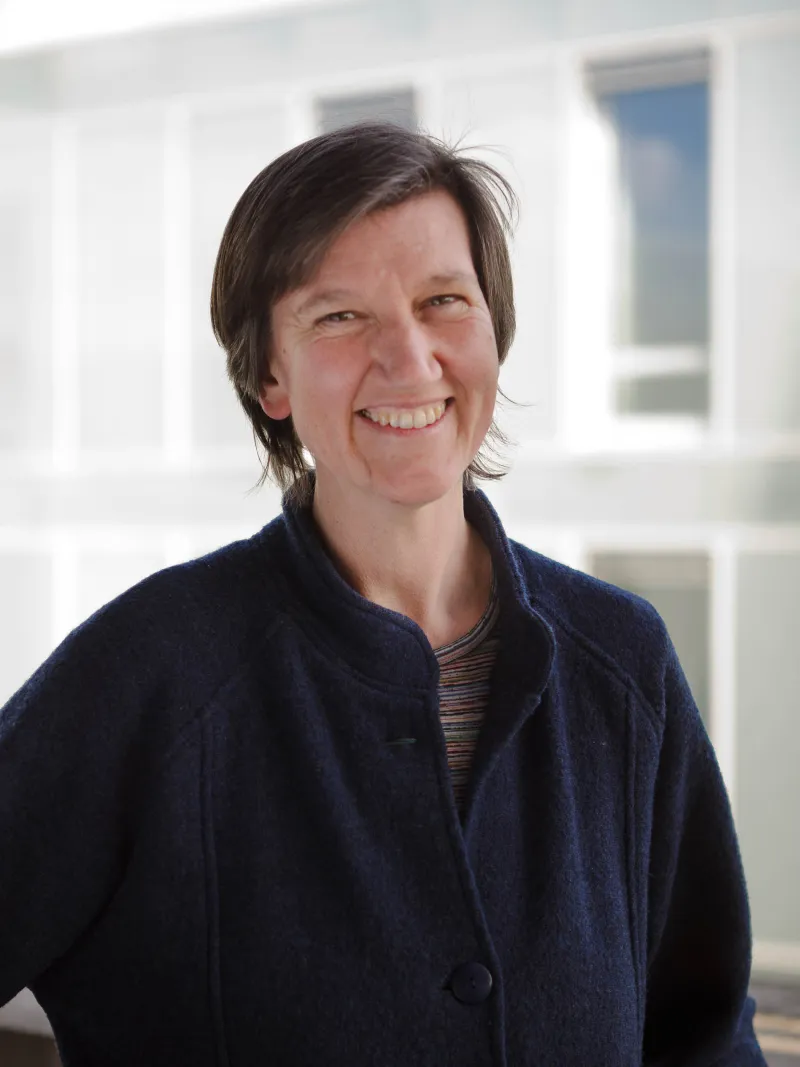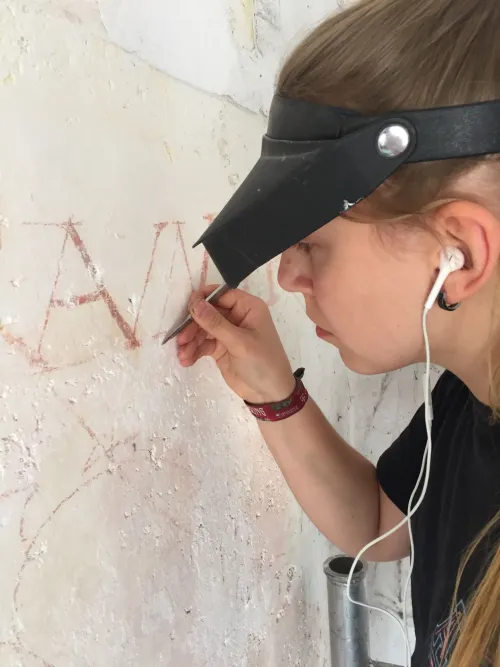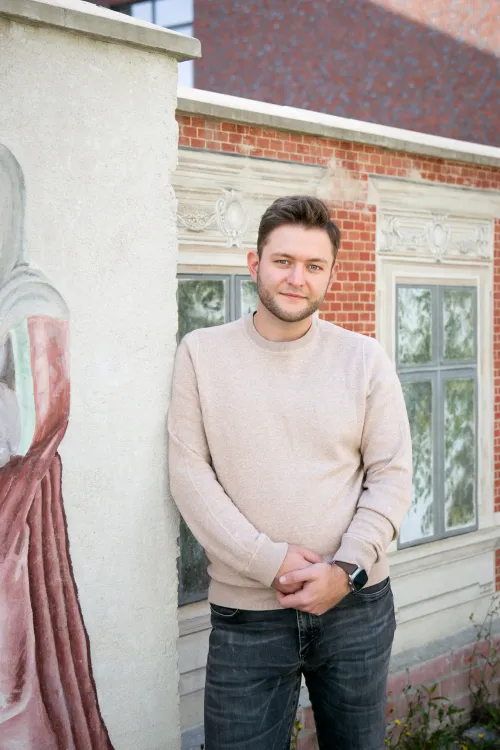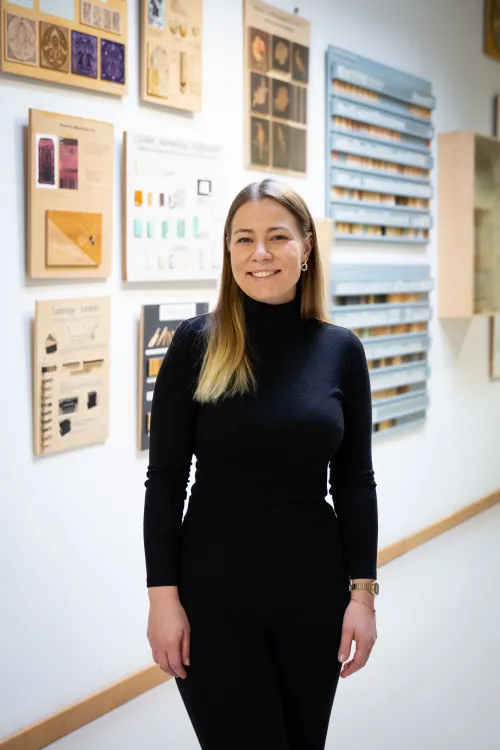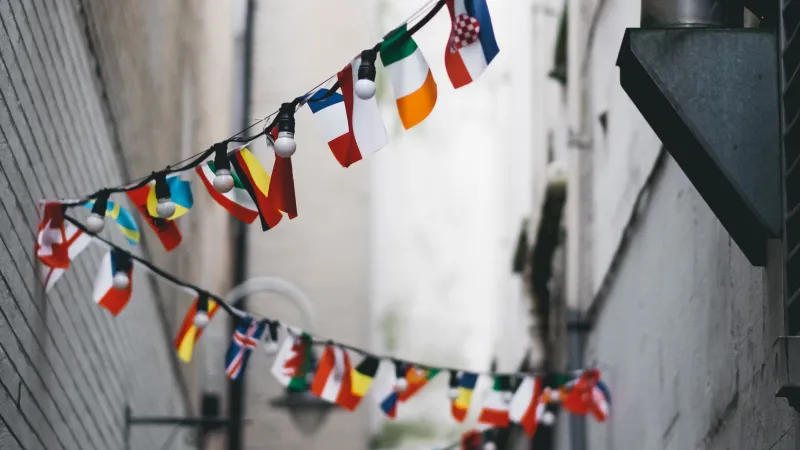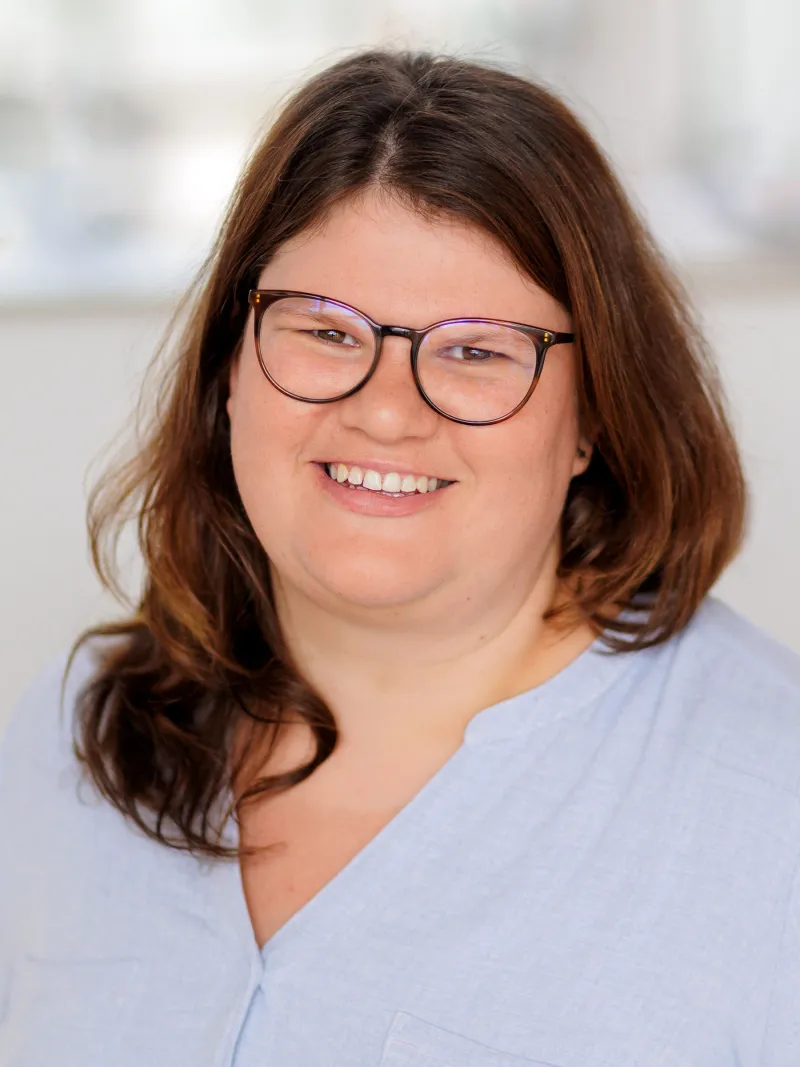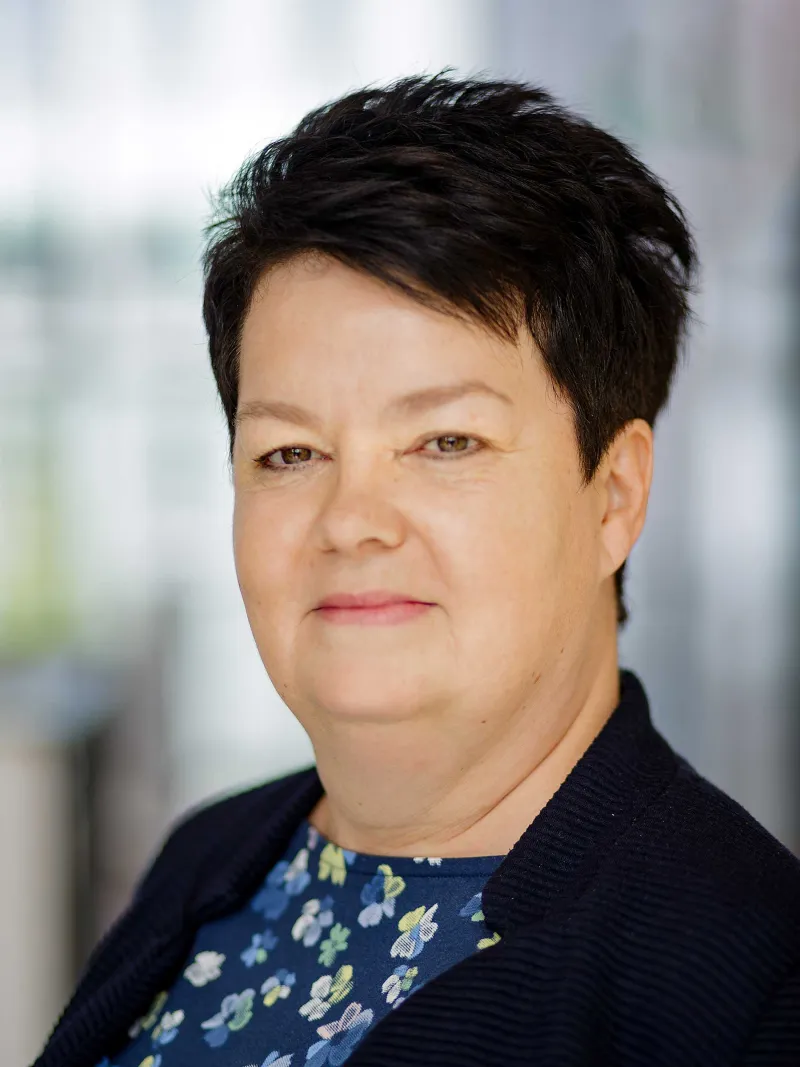The master's programme in Conservation and Restoration, which builds on the Bachelor's programme, offers three fields of study that differ in terms of material and technological specifics: wood, stone and mural painting. The programmatic focus of the course is on training for Conservation and Restoration in the field of architectural monument preservation, but also includes the museum sector.
3 semesters
15/01 – 10/03 (free of admission)
90 ECTS credits
Profile
Deepening of a specialisation
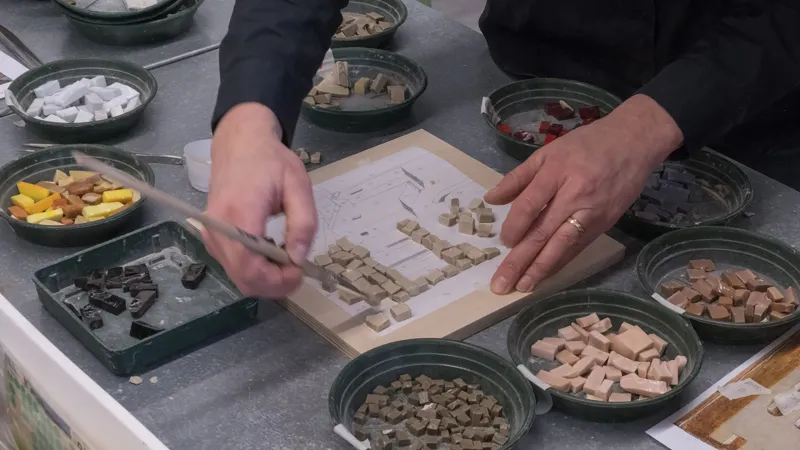
The master's programme in Conservation and Restoration builds on the practically and theoretically oriented bachelor's programme of the same name. The predominantly application-oriented study programme serves to deepen and upgrade qualifications for an independent and competent performance of all tasks in the profession. During your studies, you will have the opportunity to deepen your skills and competences in order to specialise in one or more of the "classical" subject areas or to develop new fields of activity. In this way, you will be qualified for managerial positions.
Right from the start, you decide on one of the three specialisations offered: wood, stone or mural painting. The training is interdisciplinary. In addition to a master's seminar, this becomes clear in the broad range of elective subjects on building conservation and building analysis. The master's degree in Conservation and Restoration enables you to further deepen your knowledge in a specialisation area as well as to expand your education across materials.
In the master's programme you will learn and acquire the following competences:
- Drawing up complex conservation and restoration concepts using scientific methods
- Planning, management and organisation of conservation and restoration facilities and projects
- Independent scientific work in art technology, conservation and restoration research
- Consultancy, assessment and public relations work in the field of conservation, restoration and prevention
- Interdisciplinary and international cooperation skills
- Profiling in one or more special fields or interdisciplinary areas
Fields of study
Wood
In the field of study "Wood", small objects, furniture and other pieces of equipment made of wood, whose surfaces can be refined with marquetry, stains, coatings and decorative paintings, are generally examined and processed. The master's programme focuses on building-related room elements, such as wood panelling on walls and ceilings, wooden floors, windows, doors, stairs, chairs and wooden constructions on historical buildings.
Stone
The focus of the "Stone" field of study is the classical field of natural stone in the sense of sculpture and building. Other focal points are the regionally significant materials brick and terracotta, but also "artificial stone" such as reinforced concrete sculptures as well as the coloured setting on all these materials.
Wall painting
In addition to the defined areas of wall and ceiling painting on inorganic substrates, the "Mural Painting" field of study includes the identification of historical architectural colour schemes in interior and exterior areas. The subjects of mosaics and stucco complement the subject matter.
Is this degree programme right for me?
If you have a theoretical and practical command of the basics of conservation and restoration of objects in a specialised field, the degree programme is the ideal way to deepen your knowledge.
You bring these qualities with you
- Creativity in the search for solutions to complex problems in conservation and restoration
- Interest in historical and modern techniques
- interest in topics related to the preservation of historical monuments and in interdisciplinary cooperation
- A strong interest in the professional preservation and maintenance of our cultural heritage advanced knowledge of foreign languages
Podcast of the Campus Specialists
As campus specialists, Anne and Silja share insider knowledge about the degree programme Conservation and Restoration. In addition to tips and information about the degree programme, they provide insights into student life at the University of Applied Sciences Potsdam.
Contact
The colleagues at the student counselling service provide information to prospective students, first-year students, parents, teachers and students on all general questions about studying. Do you have questions about the wood, stone and mural painting courses of the master's degree programme Conservation and Restoration? Take advantage of the counselling appointments of our subject counsellors:
- Counselling appointments for the field of study wood
- Counselling appointments for stone studies
- Counselling appointments for wall painting
Registration for a general counselling appointment for the degree programme: restaurierung@fh-potsdam.de or +49 331 580-4202
Please be sure to include your own telephone number so that you can be notified in the event of a rescheduled appointment.
Subject Counselling Service Wood
Subject Counselling Service Stone
Subject Counselling Service Mural Painting
Career Prospects
Career Prospects
Possible areas of application
- Institutions such as museums, heritage offices, universities
- Restoration companies
- Freelance work, collaboration in conservator associations
- Self-employment: founding a workshop
Scientific career
The master of arts degree entitles the holder to take up doctoral studies.
Insights into the world of work
What comes after graduation? Graduates from the degree programme Conservation and Restoration give insights into their working world.
Study Content
Course of studies
The standard period of study for the full-time programme Conservation and Restoration (MA) is three semesters and concludes with a master of arts degree. You will find a detailed overview in the study plan.
| Semester 1 – 2 | Compulsory subjects, elective subjects, flex module |
| Semester 3 | Master's colloquium, Master's thesis |
The programme consists of subjects in conservation and restoration sciences, the humanities and natural sciences, as well as a wide range of special topics. The compulsory and elective modules are completed in the first two semesters of study, followed by the master's thesis and defence in the third semester.
Study content
The high weighting of the theoretical study content is counterbalanced by a correspondingly large proportion of restauration practice. Beyond the basics, the aim here is to give students the opportunity to deepen their knowledge and skills in a practice-oriented or research-oriented manner.
In the currently valid module handbooks, study and examination regulations and statutes of the degree programme, you will find the module overview, a detailed description of the modules and study contents, the study schedule as well as the statutes for the implementation of the selection procedure for the degree programme Conservation and Restoration.
Teaching formats
- Lectures
- Seminars
- Exercises
- Project work
- Excursions
Compulsory subjects
- Practical course in natural sciences
- Special topics in art history
- Master projects in conservation and research
- Master's seminar
- Historical source writings
- Excursion
- Monument management
Elective subjects
- Building history of the 20th century
- Management competence
- Foreign language
- Fire protection in existing buildings
- Development of building construction
- Clay in historical buildings
- Durability of building materials
- Influence of building physics on construction
- Special scientific analysis
- Special topics in art history
- Building diagnostics
- Wood biology and integrated wood preservation
- Assessment and repair of brickwork
- Introduction to archival science
- Cultural-historical evaluation of architectural monuments
Natural Sciences & Design
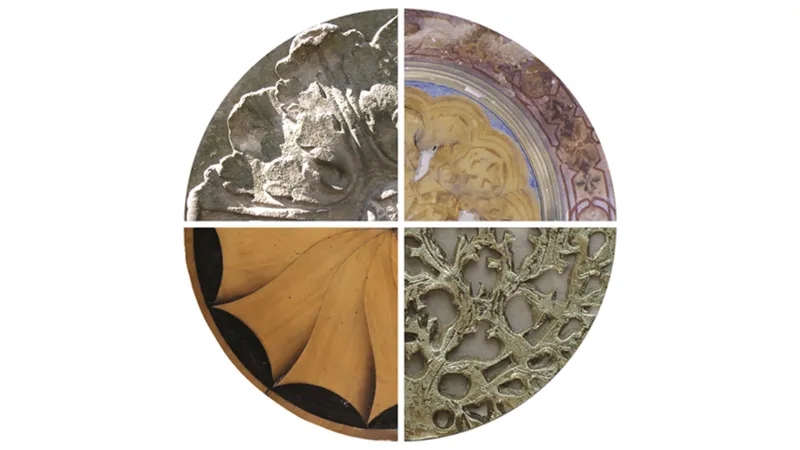
In study
On the pages of the CITY | BUILDING | CULTURE department you will find further useful information and documents on the degree programme, for example on the organisation of studies, the course catalogue and examination matters. In addition, current projects from the fields of study are presented there.
Projects
More projects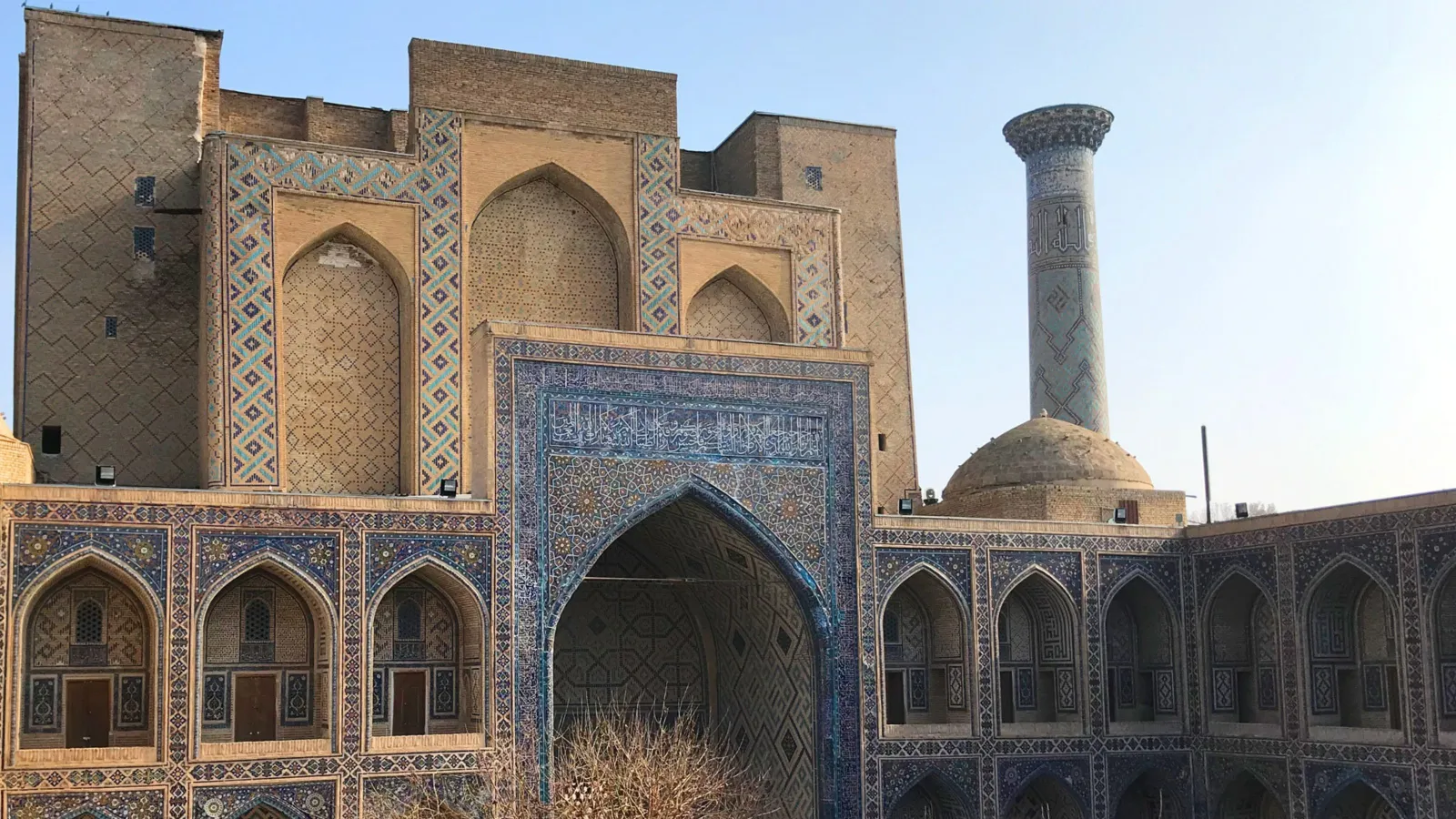
Interdisciplinary at the Monument
Transfer, innovative methods and research-based learning in practical projects for the preservation of the cultural heritage of Uzbekistan
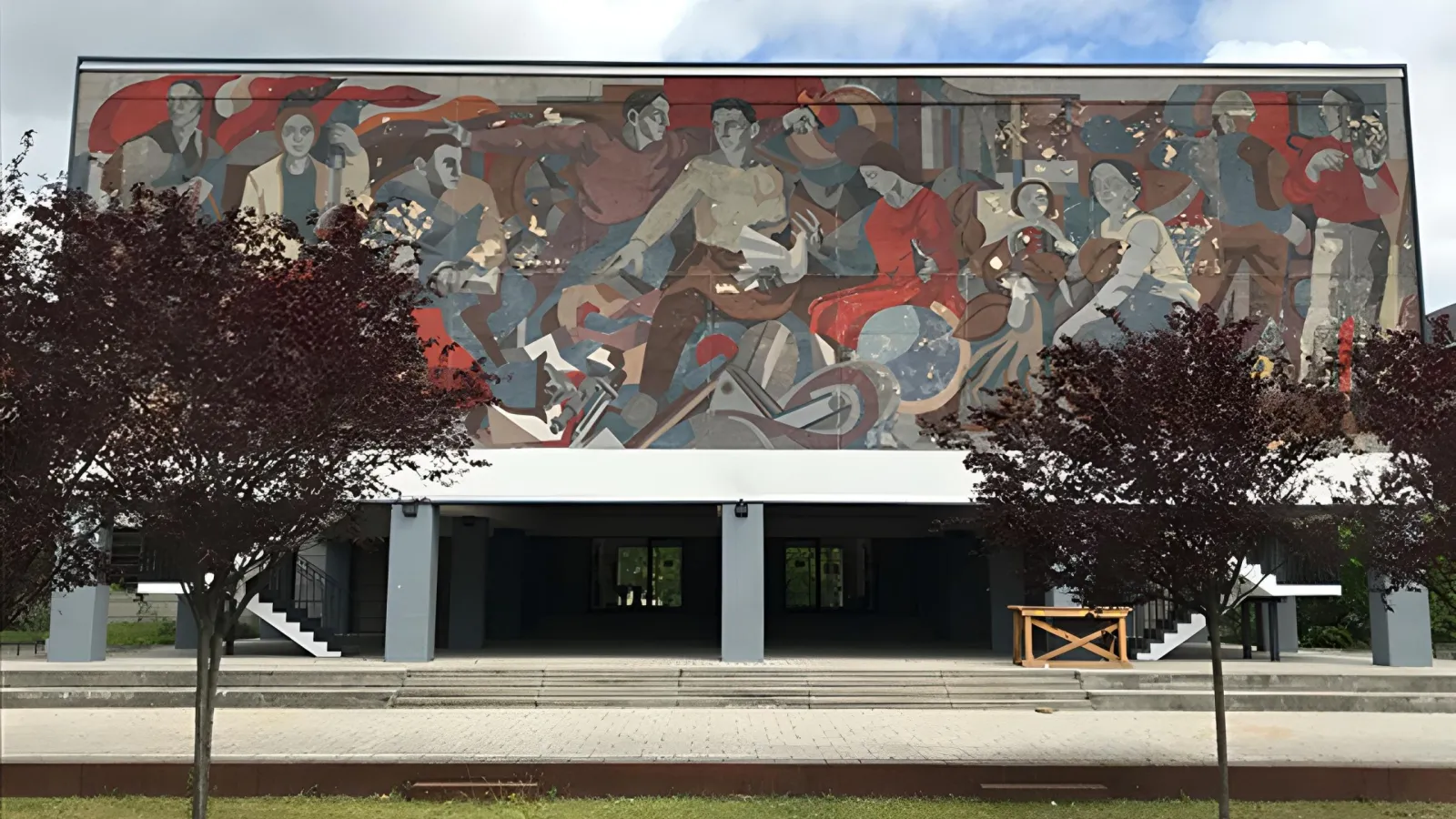
Natural Sciences | Environmental Degradation of Synthetic Conservation and Restoration Materials
Acquisition – model conservation and restoration on selected examples – digital knowledge transfer
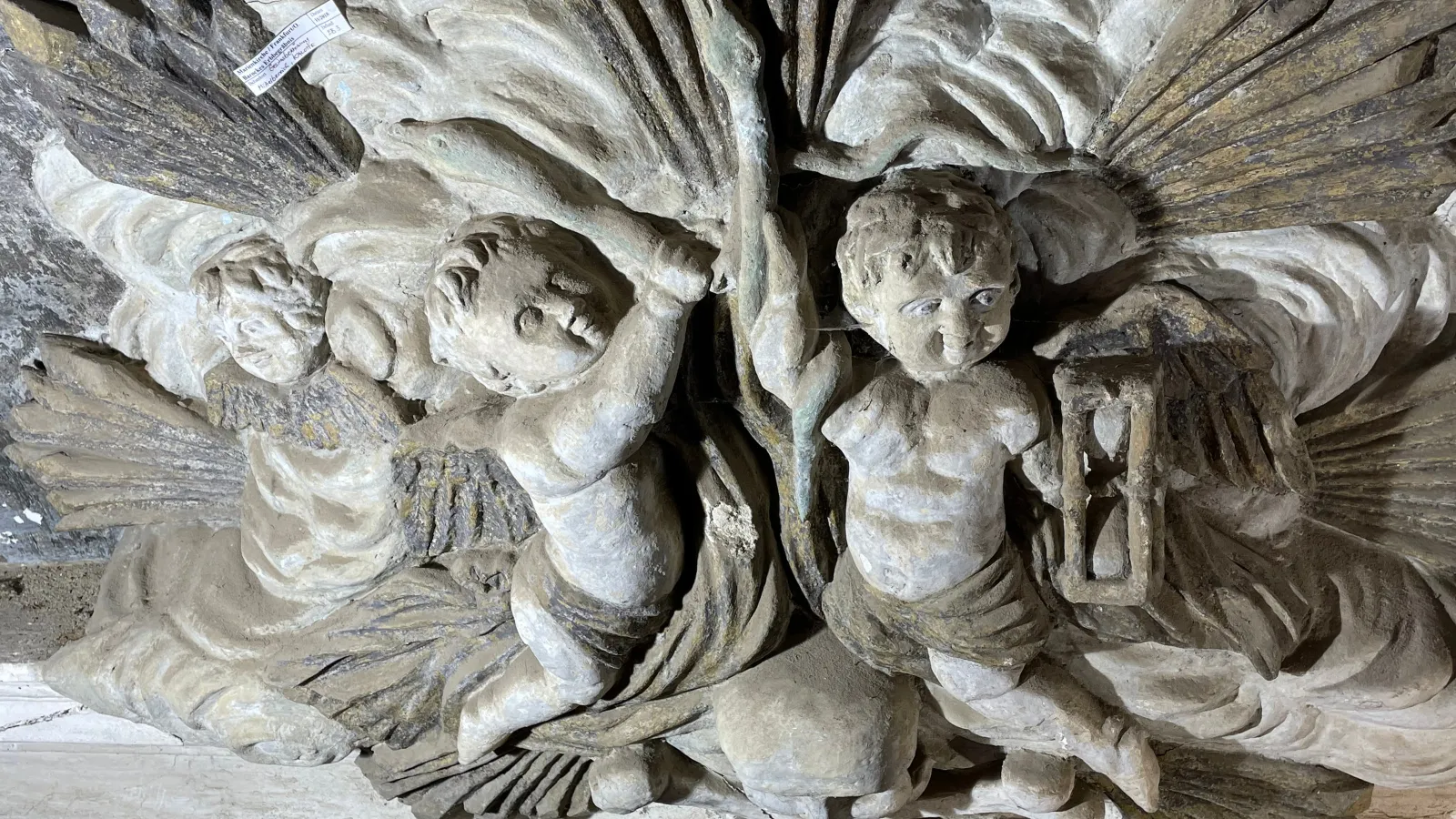
Natural Sciences | Thermal Analysis of Historical and Modern Building Materials
Modern thermoanalytical methods are used to analyse and research both historical and modern building materials, plastics and building material recycling. In addition, the measuring system is suitable for the targeted development of new modern materials.
Application & Contact
Dates & requirements for your application
The most important deadlines, dates and admission requirements for the Master's programme in Conservation and Restoration are compiled here. You can find out which steps you need to take for a successful application in the next section.
Dates
- by the 10th of March: submit enrolment application
- 6th of June 2026: Open Day at the University of Applied Sciences Potsdam
Access requirements
- First professional university degree (210 ECTS credits, at least 180 ECTS credits) in Conservation and Restauration or university degree that prepares you in a comparable way for the master's programme.
This is how you apply!
Do you meet the admission requirements? Then you have the opportunity to submit an enrolment application for the summer semester from the 15th of January to the 10th of March on the MyCampus university portal of the University of Applied Sciences Potsdam.
Following online enrolment, upload all required documents as PDF files via the upload portal. Enrolment is only valid once all documents have been uploaded in full and on time.
Documents to be submitted
- University degree certificate(s) or current transcript of records with the ECTS credit points earned to date and the grade earned to date, if the degree programme has not yet been completed.
- Proof of health insurance from the statutory health insurance for students or proof of exemption from the statutory insurance obligation via the electronic student registration procedure
- Payment slip/confirmation of payment of the semester contribution and, if applicable, other fees
- Certificate of exmatriculation from the last university attended, if applicable
- Photo for the issue of the Campus.Card
Please refer to the enrolment application form to find out whether you need to submit any additional documents.
Additional coursework and examinations to be taken
After enrolment, the examination board of the Conservation and Restauration programme decides on the type and scope of additional coursework and examinations to be taken for a degree with less than 210 ECTS credits.
Do you have any questions about the enrolment process at the University of Applied Sciences Potsdam? Our enrolment page offers you further information and a FAQ section on all aspects of admission and enrolment.
Further information
The following links provide you, and especially international applicants, with further information on the topics of application and enrolment at the University of Applied Sciences Potsdam.
International applicants
You would like to apply for studies from the first or a higher semester and have acquired your school-leaving qualification and/or university degree abroad? Then you can have degrees and achievements acquired abroad recognised and study with us.
Application and enrolment procedure
The application and study service provides information and advice on general questions regarding the application process, admission and enrolment at the University of Applied Sciences Potsdam, application for a higher semester, but also on topics such as compensation for disadvantages, part-time studies, waiting semesters and hardship applications.
Contact & Services
The student counselling service provides information and advice on general questions about studying as well as on topics such as choosing a degree programme, application, enrolment and study organisation.
For subject-specific questions on module content, credit transfer, examinations or study focus in the Master's programme in Conservation and Restauration, the subject counselling service is the right place to go.
Subject Counselling Service Wood
Subject Counselling Service Stone
Subject Counselling Service Mural Painting
Study and Examination Services
Study Info Service
studien-info-service@fh-potsdam.de
bewerbungs-service@fh-potsdam.de
campuskarte@fh-potsdam.de
Study Service
studien-service@fh-potsdam.de
Exam Service
pruefungs-service@fh-potsdam.de
Family Affairs Officer
Office hours
Tue and Thu 9.30 am – 1.30 pm
Accessibility and Inclusion Officer
Office hours
Monday and by appointment



